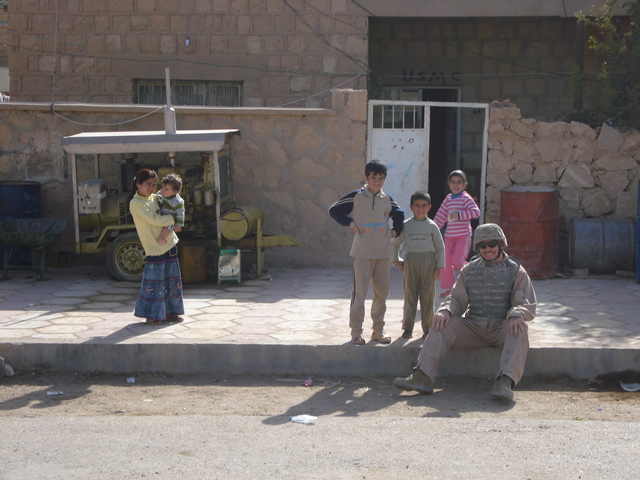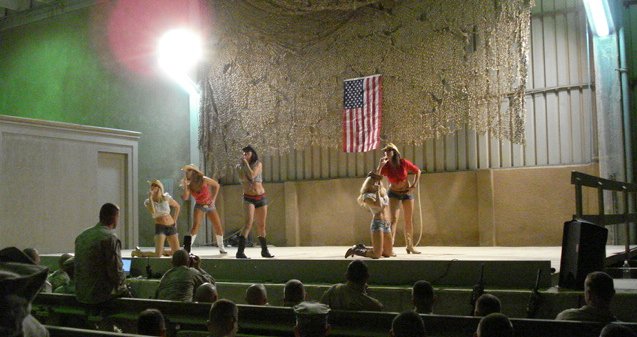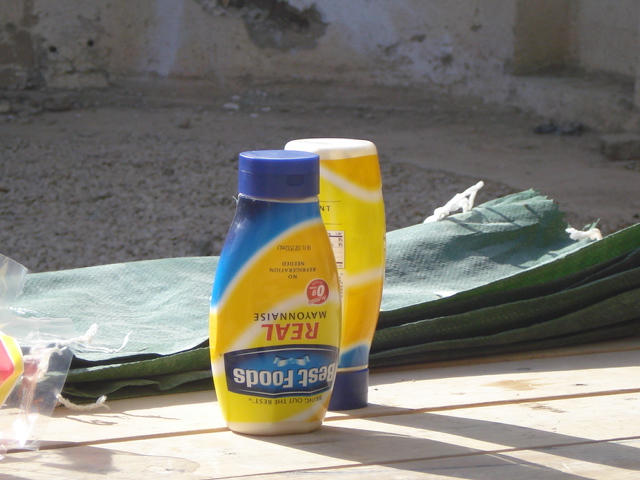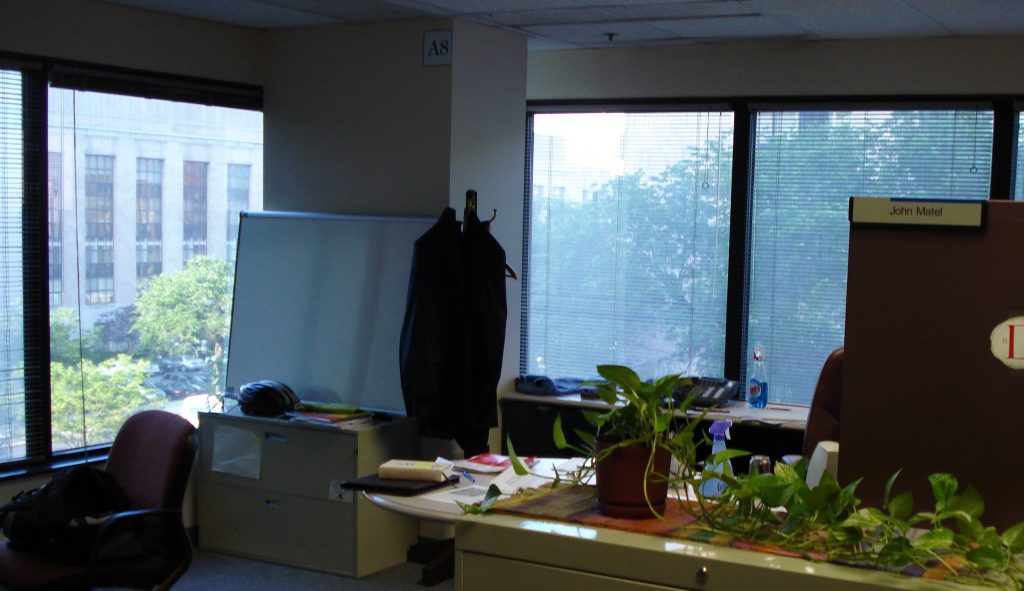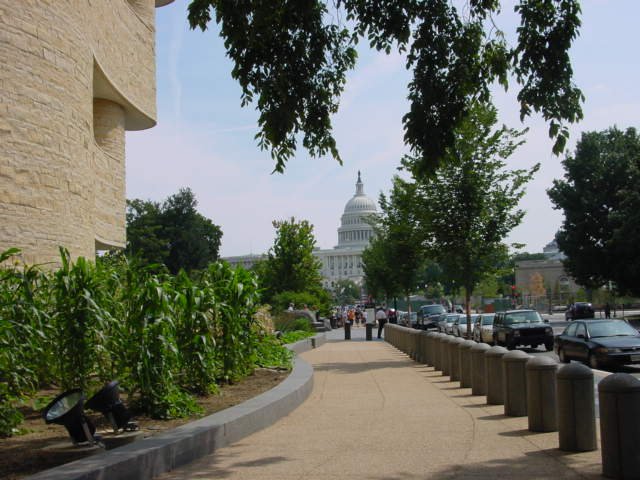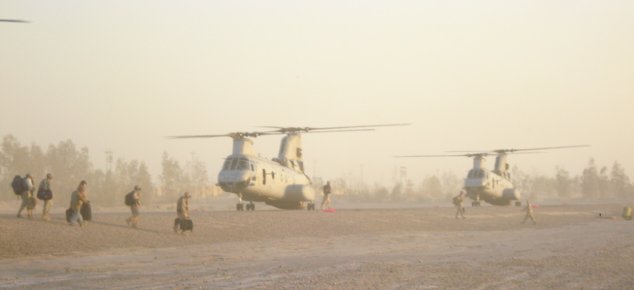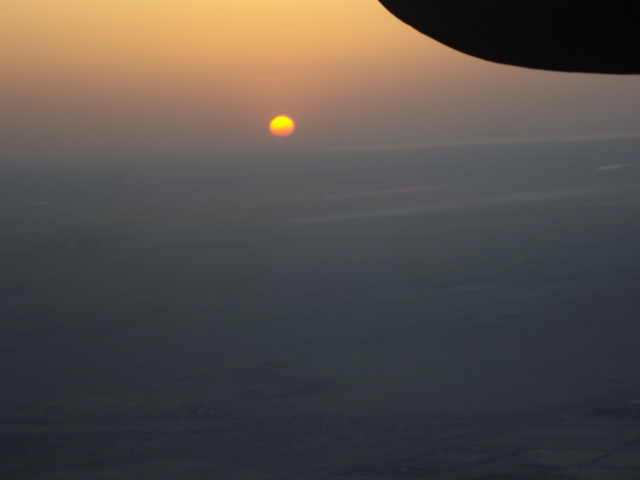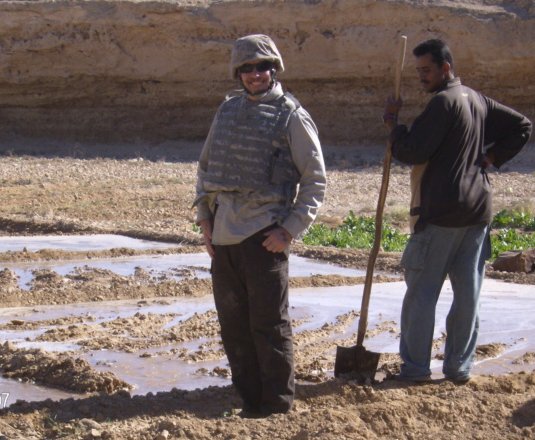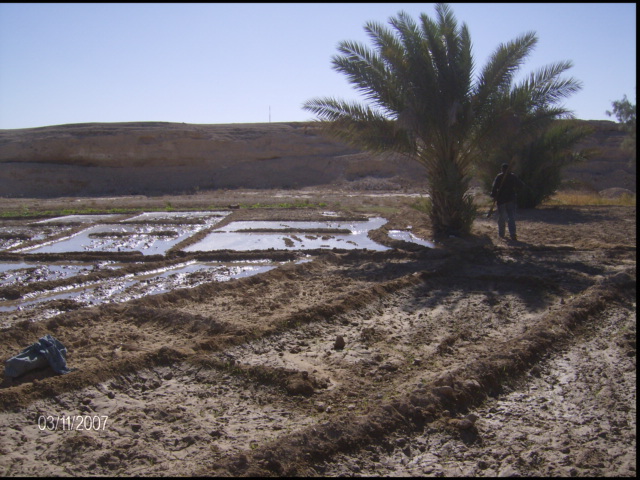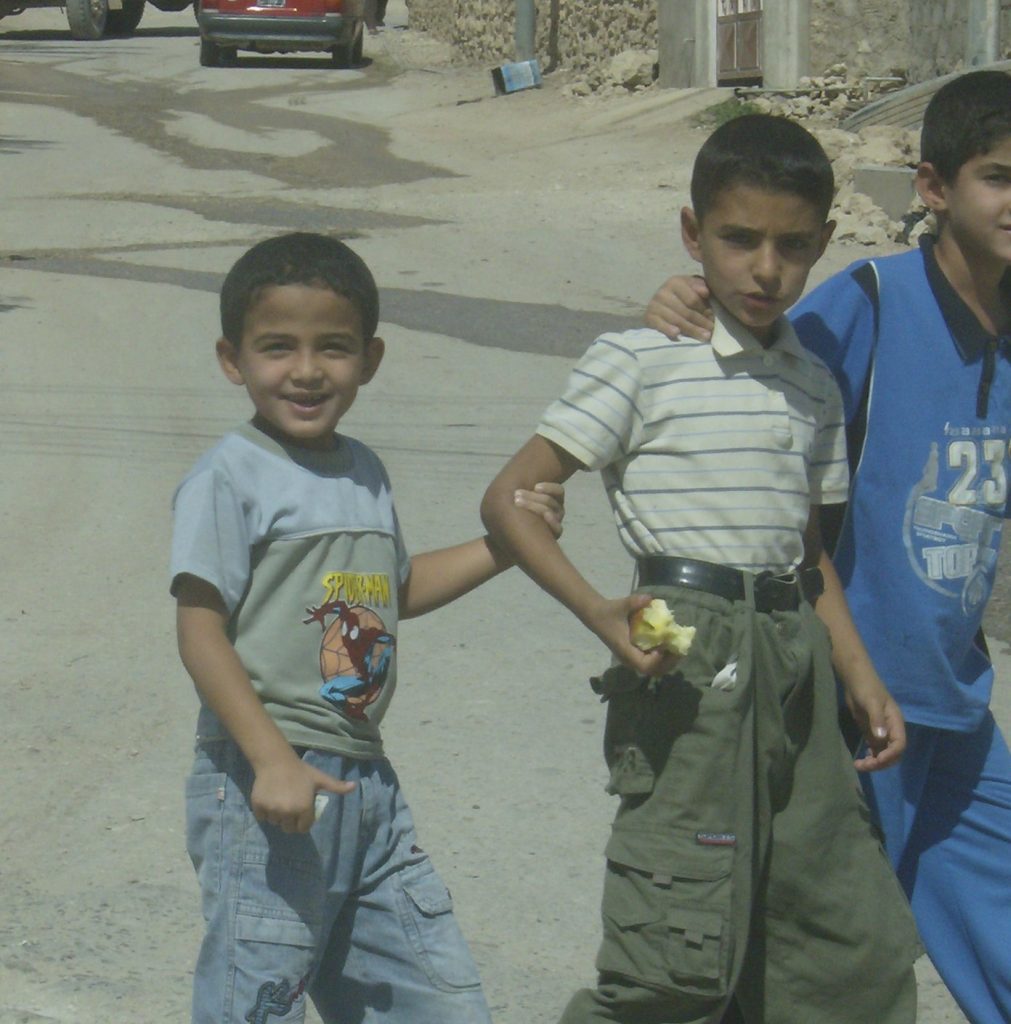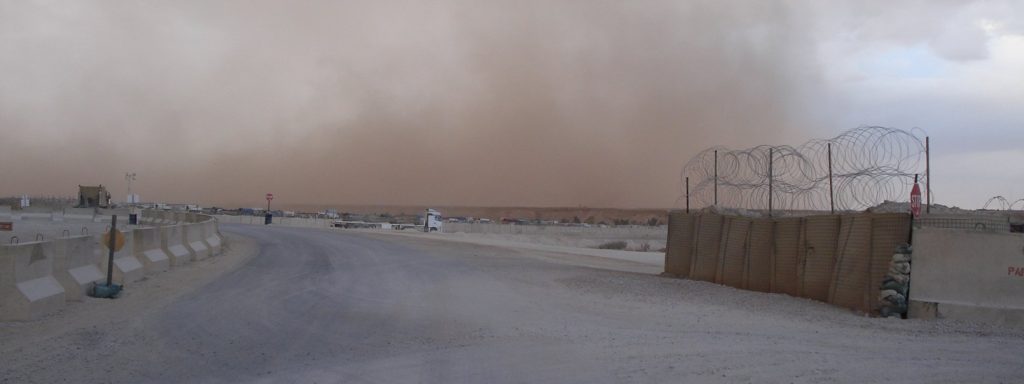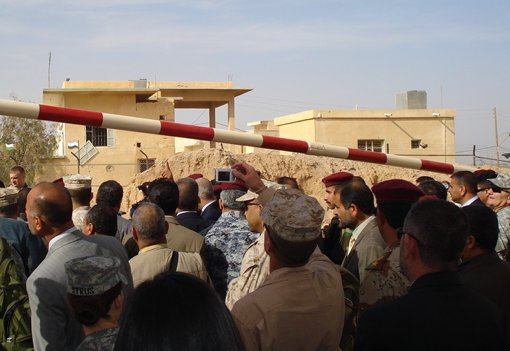
Imagine that you lost everything. Now you are getting it back. How lucky do you feel? That is where the people of Western Anbar are today. After years of suffering, things are finally starting to return to normal and normal looks plenty good when you have not seen it in a while.
The reopening of the port of entry at Husaybah will open western Anbar to trade with neighboring Syria and through that to the Mediterranean. It means that Husaybah and the Al Qaim region is now in the middle of something instead of at the far end.
Goods and people will not move immediately. The Syrians have been less involved in the opening. In fact, they were downright petulant, saying that THEY had never closed the POE so they could not reopen it. But they have begun to clear rubbish, paint buildings on their side, and even touch up the large portrait of Hafez Al Assad, whose friendly face greets visitors entering Syria. Reopening the POE will profit businesses on both sides of the border and everybody knows that. A Syrian official did wander over from the nether region of the border to congratulate his Iraqi brothers on the reopening. Whether this was a carefully planned diplomatic move or just some guy wanting to get in on the free food, I do not know.
The refurbished POE will have everything it needs. There is passport control, a medical unit, police station and a bank. Outside are docks for the unloading of trucks, as well as a quarantine area and acres of parking. Presumably businesses will pop up nearby to serve the traffic.
Hundreds of invited guests turned up for the official opening ceremony, including business leaders, officials and local sheiks. Officials made longish speeches about the work that had gone into the opening as well as the perceived benefits of trade and commerce. In other words, they made predictable political speeches, normal politics, thanking and acknowledging all those who may be useful in the future.
The opening ceremony itself represented a return to normality. Although security was very tight, great pains were taken to have security not visibly intrude. As a result, it looked like an ordinary event in a normal country, with Iraqi flags and Iraqi guests generally dressed in suits or traditional garments, not armor. The ceremony was followed by the traditional feast. I understand that 40 sheep contributed the last full measure to the festivities. And when the feasting was done, the guests went home, without incident.
Below is me at the border. Over my shoulder is Syria. Still some work needs to be done on the connection, but normality is on the way.
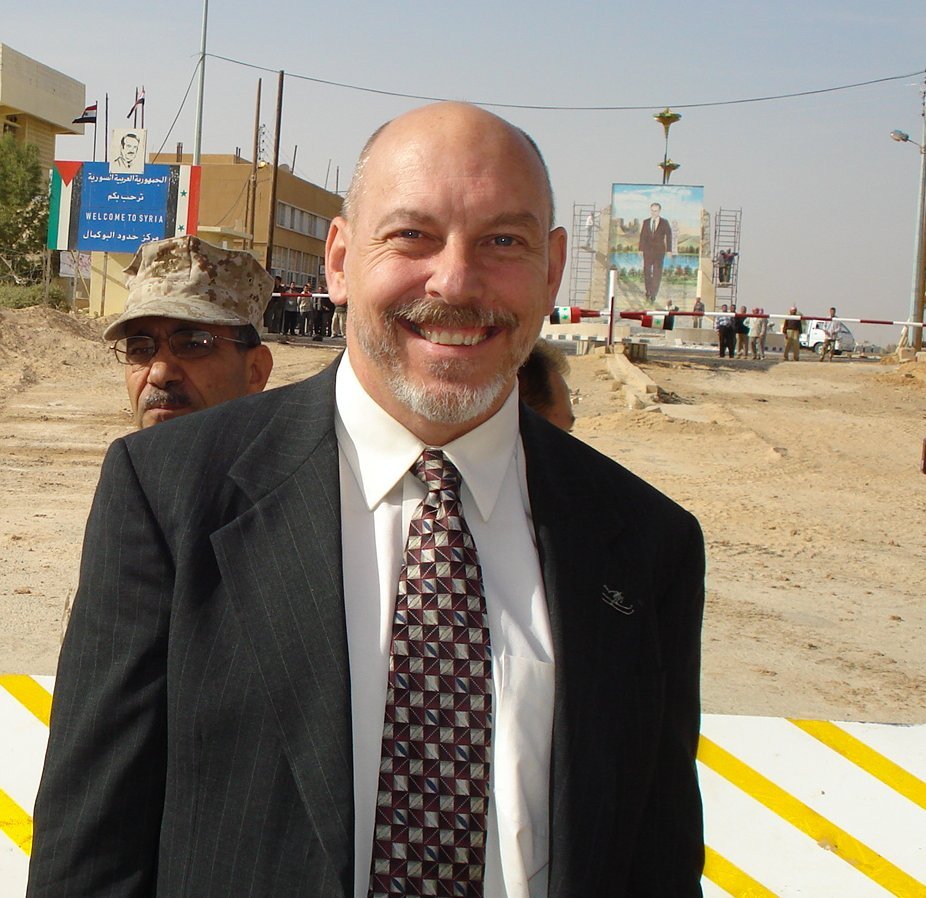
Our ePRT will be facilitating the flow of commerce at the POE, most immediately with a QRF supported grant for signage to direct traffic. In the longer term, ePRT personnel are helping with planning things such as traffic flow and placement of commercial areas.
A lot of planning went into making this spontaneous event possible. I like to remember this from the Book of the Tao:
The best rulers are scarcely known;
The next best are loved and praised;
The next are feared;
The next despised:
They have no faith in their people,
And their people become unfaithful.
When the best rulers achieve their purpose
The people say they did it themselves.
I would presume to add one more line: AND they are right, IF planners get initial conditions right and understand when to get out of the way.

